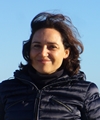Studying at the University of Verona
Here you can find information on the organisational aspects of the Programme, lecture timetables, learning activities and useful contact details for your time at the University, from enrolment to graduation.
Academic calendar
The academic calendar shows the deadlines and scheduled events that are relevant to students, teaching and technical-administrative staff of the University. Public holidays and University closures are also indicated. The academic year normally begins on 1 October each year and ends on 30 September of the following year.
Course calendar
The Academic Calendar sets out the degree programme lecture and exam timetables, as well as the relevant university closure dates..
| Period | From | To |
|---|---|---|
| Sem. 1A | Sep 25, 2023 | Nov 4, 2023 |
| Sem. 1B | Nov 13, 2023 | Dec 22, 2023 |
| Sem. 2A | Feb 19, 2024 | Mar 29, 2024 |
| Sem. 2B | Apr 9, 2024 | May 31, 2024 |
| Session | From | To |
|---|---|---|
| Sessione d'esame invernale | Jan 8, 2024 | Feb 17, 2024 |
| Sessione d'esame estiva | Jun 3, 2024 | Jul 27, 2024 |
| Sessione d'esame autunnale | Aug 26, 2024 | Sep 21, 2024 |
| Session | From | To |
|---|---|---|
| Sessione estiva | Jul 8, 2024 | Jul 13, 2024 |
| Sessione autunnale | Nov 4, 2024 | Nov 9, 2024 |
| Period | From | To |
|---|---|---|
| Festa di Ognissanti | Nov 1, 2023 | Nov 1, 2023 |
| Festa dell'Immacolata | Dec 8, 2023 | Dec 8, 2023 |
| Vacanze di Natale | Dec 23, 2023 | Jan 6, 2024 |
| Vacanze di Pasqua | Mar 30, 2024 | Apr 1, 2024 |
| Festa della Liberazione | Apr 25, 2024 | Apr 25, 2024 |
| Festa del Lavoro | May 1, 2024 | May 1, 2024 |
| Festa del Patrono S. Zeno | May 21, 2024 | May 21, 2024 |
| Festa della Repubblica | Jun 2, 2024 | Jun 2, 2024 |
| Vacanze estive | Aug 12, 2024 | Aug 17, 2024 |
Exam calendar
Exam dates and rounds are managed by the relevant Humanistic Studies Teaching and Student Services Unit.
To view all the exam sessions available, please use the Exam dashboard on ESSE3.
If you forgot your login details or have problems logging in, please contact the relevant IT HelpDesk, or check the login details recovery web page.
Should you have any doubts or questions, please check the Enrollment FAQs
Academic staff
 stefania.pontrandolfo@univr.it
stefania.pontrandolfo@univr.it
 marco.ubbiali@univr.it
marco.ubbiali@univr.it
Study Plan
The Study Plan includes all modules, teaching and learning activities that each student will need to undertake during their time at the University.
Please select your Study Plan based on your enrollment year.
1° Year
| Modules | Credits | TAF | SSD |
|---|
2° Year It will be activated in the A.Y. 2024/2025
| Modules | Credits | TAF | SSD |
|---|
Indirect internship for coordination of educational services
| Modules | Credits | TAF | SSD |
|---|
| Modules | Credits | TAF | SSD |
|---|
Indirect internship for coordination of educational services
| Modules | Credits | TAF | SSD |
|---|
Legend | Type of training activity (TTA)
TAF (Type of Educational Activity) All courses and activities are classified into different types of educational activities, indicated by a letter.
Observing child behavior: Theories and techniques (2023/2024)
Teaching code
4S00815
Teacher
Coordinator
Credits
9
Language
Italian
Scientific Disciplinary Sector (SSD)
M-PSI/04 - DEVELOPMENTAL AND EDUCATIONAL PSYCHOLOGY
Period
Sem. 1A, Sem. 1B
Courses Single
Authorized
Learning objectives
Knowledge and understanding
1. Having a basic knowledge and understanding of the theoretical foundations of the different behavioral observation techniques.
2. Have a basic knowledge and understanding of characteristics, use conditions, advantages and limits of the different qualitative and quantitative techniques based on the observation of child behavior in her/his contexts.
3. Having a basic knowledge and understanding of the opportunities to use specific tools for observing and evaluating the child's abilities in different developmental domains.
Applying knowledge and understanding
1. Being able to use the different observational techniques learned during the course, and apply the most appropriate in educational practice.
2. Being able to design a simple data collection based on the observation of child behavior in an educational context.
3. Being able to assess the reliability and validity of data collected through observation, and to carry out a descriptive analysis of collected data.
Prerequisites and basic notions
Know the basics of developmental psychology.
Program
Part 1. Theoretical and introductory in which the following topics will be dealt with: - Main epistemological questions connected to observation, distinctive characteristics of observation (as a research method and data collection technique), and psychological processes involved; - Theoretical perspectives using the observation of child behavior as a research and/or training method (detached, critical and participatory observation and related approaches); - The main qualitative and quantitative observation techniques in educational contexts (narrative descriptions, coding scheme, check-lists, evaluation scales): analysis of advantages and disadvantages; Part 2. Of a practical-applicative nature: - How to design an observational study. - Tools and techniques to observe adult-child interactions, between peers; - Tools and techniques to observe the cognitive, linguistic, motor, socio-emotional development at nursery school and kindergarten; - Observe to plan interventions; - Notes on data collection and descriptive data analysis.
Bibliography
Didactic methods
The lessons will be frontal and interactive and guided exercises of various types will be conducted. A particular space will be dedicated to the observation and analysis of films for the application of the techniques presented, to the shared reading and interpretation of scientific articles and to the analysis of these in small groups. The materials that will be shared in class (with the sole exception of the videos) will be shared via the Moodle platform. Since this is a methodological course, attendance at the lessons is highly recommended and is a prerequisite and indispensable to participate in the Laboratory of Observation Techniques of Infantile Behavior.
Learning assessment procedures
Reference bibliography for exam preparation
ATTENDING STUDENTS
1) Baumgartner (2018). Observation of infant behavior. Carocci. (Everything except chap. 8)
2) Scientific articles (national and international journals), materials provided by the teacher shared in class and/or via the Moodle platform.
NON ATTENDING STUDENTS
1) Baumgartner (2018). L’osservazione del comportamento infantile. Carocci. (Everything except chap. 8)
2) Scientific articles (national and international journals), materials provided by the teacher shared in class and/or via the Moodle platform.
3) Aureli & Perucchini (2014). Osservare e valutare il comportamento del bambino. Il Mulino (from page 116 to 199).
Supporting bibliography (for all):
Belsky, J. (2020). Psicologia dello Sviluppo. Zanichelli. (For those who have not taken the Developmental Psychology exam)
For attending students, the final exam is characterized by an ongoing test (the result of group work) and a written test (3 open questions on the manual , duration: 1.5 hours).
For non-attending students, the exam is characterized by a written test (2 open questions on the manual (Baumgartner, 2018) + 1 practical-application question (Aureli & Perucchini, 2014), duration: 1.5 hours ). Upon request, it is possible to supplement the written exam (with sufficient evaluation) with an oral exam.
Evaluation criteria
The written test will assess whether the student: - knows and has understood both the principles that guide the observational method, and the different observation techniques (distinctive characteristics, conditions and methods of use, advantages, limits) and theoretical perspectives that use them; - will know how to relate and process the knowledge acquired; - will know how to apply the acquired knowledge in a critical and competent way; - will know how to apply the knowledge acquired in concrete contexts of psycho-pedagogical research and educational practice; - will know how to present their arguments with clarity and terminological mastery.
Criteria for the composition of the final grade
Attendants: arithmetic mean of the ongoing test and of the three questions of the written test.
Not attended: arithmetic average of the three questions and possible oral evaluation.
Exam language
Italiano
Type D and Type F activities
SOFT SKILLS
Find out more about the Soft Skills courses for Univr students provided by the University's Teaching and Learning Centre: https://talc.univr.it/it/competenze-trasversali
CONTAMINATION LAB
The Contamination Lab Verona (CLab Verona) is an experiential course with modules on innovation and enterprise culture that offers the opportunity to work in teams with students from all areas to solve challenges set by companies and organisations.
Upon completion of a CLab, students will be entitled to receive 6 CFU (D- or F-type credits).
Find out more: https://www.univr.it/clabverona
PLEASE NOTE: In order to be admitted to any teaching activities, including those of your choice, you must be enrolled in the academic year in which the activities in question are offered. Students who are about to graduate in the December and April sessions are therefore advised NOT to undertake extracurricular activities in the new academic year in which they are not enrolled, as these graduation sessions are valid for students enrolled in the previous academic year. Therefore, students who undertake an activity in an academic year in which they are not enrolled will not be granted CFU credits.
| years | Modules | TAF | Teacher |
|---|---|---|---|
| 1° 2° | Ciclo tematico di conferenze – sulla "leadership femminile": dati, riflessioni ed esperienze | D |
Paola Dal Toso
(Coordinator)
|
| 1° 2° | Invisible plots in contemporary reality | D |
Rosanna Cima
(Coordinator)
|
| 1° 2° | University and DSA - Methods and strategies for tackling study and university studies | D |
Gianluca Solla
(Coordinator)
|
| years | Modules | TAF | Teacher |
|---|---|---|---|
| 1° 2° | Art, memory and terrorism: the duty to protect our cultural heritage | D |
Olivia Guaraldo
(Coordinator)
|
| 1° 2° | Ciclo tematico di conferenze – sulla "leadership femminile": dati, riflessioni ed esperienze | D |
Paola Dal Toso
(Coordinator)
|
| 1° 2° | Laboratory of behavioral observation techniques | D |
Marinella Majorano
(Coordinator)
|
| 1° 2° | Invisible plots in contemporary reality | D |
Rosanna Cima
(Coordinator)
|
| 1° 2° | University and DSA - Methods and strategies for tackling study and university studies | D |
Gianluca Solla
(Coordinator)
|
| years | Modules | TAF | Teacher |
|---|---|---|---|
| 1° 2° | Cities and Freedom | D |
Giacomo Mormino
(Coordinator)
|
| 1° 2° | Education and affectivity - 200 years after Christian education by Antonio Rosmini | D |
Fernando Bellelli
(Coordinator)
|
| 1° 2° | Body and Disability – Laboratory | D |
Michele Scandola
(Coordinator)
|
| 1° 2° | Group Psychology and evaluation of educational intervention | D |
Anna Maria Meneghini
(Coordinator)
|
| years | Modules | TAF | Teacher |
|---|---|---|---|
| 1° 2° | Cities and Freedom | D |
Giacomo Mormino
(Coordinator)
|
| 1° 2° | Legal clinics | D |
Alessia Maria Aurora Bevilacqua
(Coordinator)
|
| 1° 2° | Philosophy and politics of care | D |
Alessia Maria Aurora Bevilacqua
(Coordinator)
|
| 1° 2° | Tai-Ti aiuto io | D |
Alessandra Cordiano
(Coordinator)
|
| 1° 2° | Verso le elezioni europee 2024 | D |
Massimo Prearo
(Coordinator)
|
Career prospects
Module/Programme news
News for students
There you will find information, resources and services useful during your time at the University (Student’s exam record, your study plan on ESSE3, Distance Learning courses, university email account, office forms, administrative procedures, etc.). You can log into MyUnivr with your GIA login details: only in this way will you be able to receive notification of all the notices from your teachers and your secretariat via email and soon also via the Univr app.
Student mentoring
Graduation
Documents
| Title | Info File |
|---|---|
|
|
pdf, it, 99 KB, 13/10/23 |
|
|
pdf, it, 101 KB, 10/04/24 |
List of theses and work experience proposals
| theses proposals | Research area |
|---|---|
| Psicoanalisi | Psychology - Psychology, Psychoanalysis |
Gestione carriere
Linguistic training CLA
Practical information for students
Documents
| Title | Info File |
|---|---|
|
|
pdf, it, 325 KB, 02/05/23 |
|
|
pdf, it, 212 KB, 02/05/23 |
|
|
pdf, it, 131 KB, 02/05/23 |
Stage e Tirocini
Per le altre attività formative (crediti F) sono previsti 9 cfu (pari a 225 ore) da acquisire solamente attraverso l’attività di tirocinio obbligatoria, a sua volta suddivisa in:
- tirocinio indiretto (1 cfu: 25 ore di frequenza obbligatoria in università per il 75%) in preparazione dell’attività formativa sul campo;
- tirocinio diretto (8 cfu), da svolgersi presso enti convenzionati.
L’ordinamento didattico della LM in Scienze pedagogiche prevede che il tirocinio indiretto a frequenza obbligatoria si svolga in università per il 75% nel secondo anno (1 CFU: 25 ore).
Il tirocinio indiretto consiste in un accompagnamento iniziale delle/degli studenti da parte dei tutor attraverso un percorso di formazione della durata di 25 ore.
La finalità di questo percorso è quella di preparare le/gli studenti alla particolare forma di apprendimento costituita dal tirocinio, dotandoli di conoscenze e strumenti adeguati a osservare, comprendere e rielaborare criticamente l’esperienza di tirocinio nei servizi educativi e ad affrontare il tirocinio negli enti con metodo e consapevolezza.
Il percorso, da attuare in gruppi da 20-25 persone sotto la supervisione di un tutor proveniente dal mondo professionale di educatori e pedagogisti, risponde alle esigenze costantemente espresse sia dalle/dagli studenti stessi sia dalle parti sociali che dai referenti degli enti convenzionati.
Nuove Linee Guida per il tirocinio di Scienze pedagogiche.
- Tutte le informazioni in merito agli stage per futuri studenti sono disponibili alla pagina Stage e tirocini.
- Tutte le informazioni in merito agli stage per studenti iscritti sono pubblicate in MyUnivr - come fare per - stage e tirocini.
- Tutte le informazioni in merito agli stage per le aziende sono disponili alla pagina Stage e tirocini per azienze.

 045 802-8183
045 802-8183

















